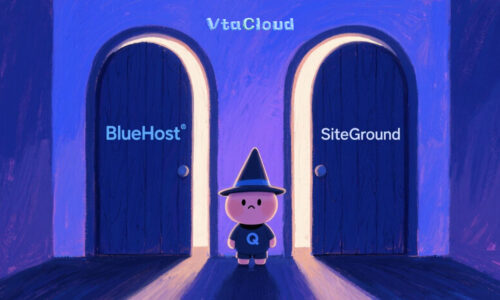
The Hidden Costs of Web Hosting: What Every Website Owner Must Know
- IvanTan
- April 28, 2025
- Hosting
- avoid hosting fees, bandwidth overage charges, budget hosting, hidden costs of web hosting, SSL certificate costs, transparent web hosting, vtaCloud hosting
- 0 Comments
Choosing a web hosting plan based solely on the advertised price can lead to unwelcome surprises. Many providers lure customers with low introductory rates but bury critical fees in the fine print. From unexpected bandwidth charges to security upgrades, these hidden costs can strain budgets and disrupt your website’s growth. In this article, we break down the 10 most common hidden costs of web hosting and provide practical strategies to avoid them—without pushing you to third-party services.
1. The Myth of “Unlimited” Resources
“Unlimited bandwidth” or “unlimited storage” plans often come with invisible restrictions. Providers may throttle your site’s speed during traffic surges or limit file types and database sizes. Exceeding these unstated thresholds can result in sudden fees or forced upgrades.
- Tip: Review the terms of service for “fair usage” policies to avoid surprises.
2. Bandwidth and Data Transfer Overage Fees
High-traffic websites or media-heavy pages can quickly exceed monthly bandwidth limits, leading to steep overage charges. For example, exceeding a 1TB cap might cost 10–10–50 per extra GB.
- Tip: Use a content delivery network (CDN) and compress media files to reduce bandwidth strain.
3. SSL Certificate Costs
While basic SSL certificates are often free, premium options with advanced validation can cost 50–50–300 annually. Some budget hosts exclude SSL entirely, forcing you to pay extra.
- Tip: Choose providers that include free SSL certificates with their plans.
4. Site Migration Fees
Switching hosts? Many providers charge 100 – 300 for migration, especially for complex websites.
- Tip: Look for hosts offering free migration services.
5. Performance Penalties on Cheap Hosting
Shared hosting plans often suffer from slow speeds and downtime due to overcrowded servers, harming user experience and SEO.
- Tip: Upgrade to VPS or cloud hosting as your site grows.
6. Backup and Restoration Fees
Restoring your site from a backup can cost 25–25–150 per request, and automated backups may require premium add-ons.
- Tip: Use built-in backup tools or plugins to maintain control over your data.
7. Domain Renewal Traps
A “free domain” for the first year often leads to inflated renewal fees later.
- Tip: Compare renewal rates before committing to a provider.
8. Security Upgrade Costs
Advanced security features like malware scanning or DDoS protection are rarely included in basic plans, costing 10–10–50/month extra.
- Tip: Prioritize hosts with built-in security features.
9. Technical Support Fees
Some providers charge extra for priority support or limit assistance to basic issues.
- Tip: Opt for hosts with 24/7 live chat and clear support guarantees.
10. Email Hosting Add-Ons
Custom email addresses often cost 1–1–5 per mailbox monthly if not included in your plan.
- Tip: Verify email hosting details before signing up.
How to Avoid Hidden Hosting Costs
- Read the Fine Print: Scrutinize terms for renewal rates, overage fees, and upgrade policies.
- Choose Scalable Solutions: Cloud hosting allows you to pay only for the resources you use.
- Demand Transparency: Avoid providers with vague pricing structures.
Conclusion
Hidden hosting costs can transform an affordable plan into a financial burden. By understanding pitfalls like SSL fees, migration charges, and throttled resources, you can make informed decisions that protect your budget. For a hosting provider that eliminates hidden fees and prioritizes transparency, vtaCloud.com stands out. With straightforward pricing, free SSL, migration support, and robust security included in every plan, vtaCloud ensures you get reliable performance without unexpected costs.
SEO Keywords: hidden costs of web hosting, SSL certificate fees, bandwidth overage charges, website migration costs, transparent hosting.
Ready to simplify your hosting experience? Explore VTACloud.com today for hassle-free, budget-friendly plans.






